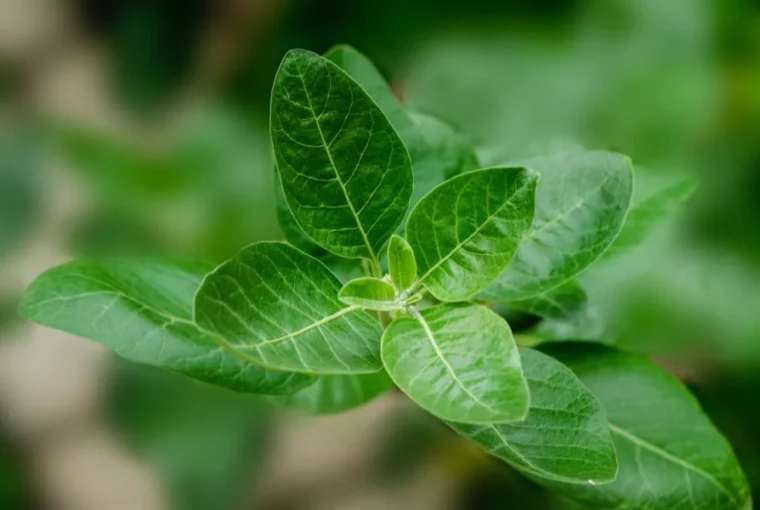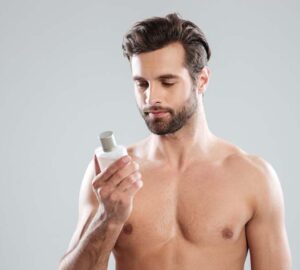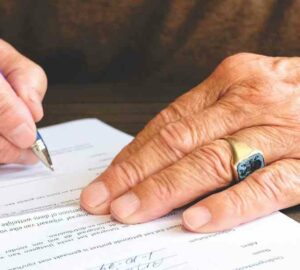There’s been a lot of buzz around plants that can help you raise testosterone naturally over the last year or so and Ashwagandha tends to be at the top of the list for discussion. Along with a few other notables, Turkesterone, Tongkat Ali and Panax Ginseng there’s a lot of conflicting information on how effective these plants actually are.
That hasn’t stopped the fitness industry from producing a whole host of testosterone booster supplements for men looking to increase their performance in the gym and boost lean muscle mass.
With that popularity in mind, it begs the question is Ashwagandha a testosterone booster?
How Ashwagandha Is Supposed To Boost Testosterone
Ashwagandha is what is known as an adaptogen, that means it belongs to a family of plants which can help the body’s natural reaction to stress and anxiety as well as improving immune responses. The way that stress and anxiety functions is through a hormone known as cortisol. Cortisol production and saturation reduces your bodies natural ability to produce testosterone. Thus, as a result of this Ashwagandha does in fact impact testosterone. This element of it’s performance isn’t typically something that’s debated. There is also the fact that it’s been shown to be effective at improving sleep quality as a result, which also improves natural hormone production. So, in this regard yes, Ashwagandha is a testosterone booster as a by product of it’s other effects. But, the question becomes, does it do anything for men who aren’t stressed or having issues with sleep. (Although it should be noted that this is a very large subset of the US population).
What Else Makes Ashwagandha Work?
Ashwagandha itself contains alkaloids, steroidal lactone and saponins.
Alkaloids have notable effect on humans and whilst the ones in Ashwagandha are safe, they range from relatively neutral to the active ingredients in morphine, so once again it’s no question as to if they have an impact or not.
Steroidal lactones have a range of functions, and this is where things get a bit more complicated. They work as anti inflammatory, immune boosters and stress regulators. One of the many ways in which they function are improving T Cell mobility. So, you can probably see where this is going.
The steroidal lactone in Ashwagandha WFA not only improves the mobility of testosterone cells, but also binds to a protein called ZAP70 kinase, this ZAP70 is one of the ways in which the body breaks down testosterone. Thus in binding to ZAP70 the WFA in ashwagandha leaves you with more free testosterone as your body breaks down the testosterone in your body more slowly leaving you with more.
The anti inflammatory effects do also help gym recovery in theory helping people train harder which does lead to improvement in lean muscle mass in many cases, which is an added benefit for a lot of men seeking to raise testosterone levels.
Lastly with have the saponins typically speaking these work by increasing the production of testosterone in the body, the largest studied impacts have been on men who are training heavily. Typically during overtraining testosterone levels become naturally suppressed whereas supplementing with saponins significantly reduced this issue resulting in some increases of 150% vs previously suppressed testosterone levels. Although most of the studies on saponins specifically were done on extracts from Tribulus (another commonly used testosterone booster ingredient).
Have There Been Human Trials Of Ashwagandha?
There have actually been quite a few double blind trials of Ashwagandha and meta analysis would suggest that in more cases than not it has proven to be effective as a testosterone booster. That said it doesn’t work for everyone and side effects of nausea are common enough to be worth noting. It should be noted that Ashwagandha is not going to raise T levels beyond normal human levels, but has represented increases of 10-20%, which would still be a noticeable impact for most men.
It’s also had a lot of studies for cortisol build up and self reported sleep quality, which as we have mentioned would in and of itself raise test, but it should also be noted that these issues are symptoms of declining testosterone levels so this adds a double use to the plant for symptomatic use. As a result Ashwaganda is in a lot of sleep supplements as well.
Generally speaking the most commonly used dosage that was shown to be effective is 600mg or above.
Conclusion Does Ashwagandha Boost Testosterone?
All in all we’d say that there’s a good amount of evidence to suggest that the herb could actually have an impact and if nothing else it does have a host of other health benefits for men. The issues around the herb seems to be that a lot of the supplements industry overpromises and underdelivers.
There is also the fact that about 30% of studies showed little significant improvements to test levels. However if we’re looking solely at high quality trials using 400mg of concentrated ashwagandha extract then the numbers look a little better.
In general it seems that it does work for a reasonable amount of people and could well be worth a try.




